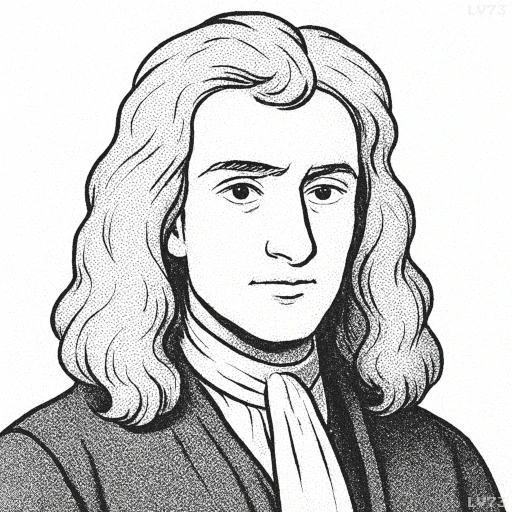“Hypotheses should be subservient only in explaining the properties of things but not assumed in determining them, unless so far as they may furnish experiments.”

- January 4, 1643 – March 31, 1727
- Born in England (UK)
- Natural philosopher, mathematician, physicist, astronomer, theologian
table of contents
Quote
“Hypotheses should be subservient only in explaining the properties of things but not assumed in determining them, unless so far as they may furnish experiments.”
Explanation
In this quote, Isaac Newton emphasizes the importance of empirical evidence in scientific inquiry and the proper role of hypotheses in the process of discovery. Newton argues that hypotheses should not be used as the starting point for determining the properties of natural phenomena; rather, they should serve as tools to explain or clarify observations. Hypotheses should be subordinate to experiments and data, providing a framework for understanding observed facts but not dictating those facts. In Newton’s time, this approach marked a sharp departure from earlier methods of inquiry, where theories or ideas could be accepted without rigorous testing. For Newton, the scientific method had to prioritize evidence and experiment over speculation or untested assumptions.
This principle was part of what made Newton’s work so revolutionary. His mathematical laws of motion and universal gravitation were grounded in careful, systematic observations and experiments, rather than starting with abstract or unfounded hypotheses. By insisting that hypotheses must be verified through experiment, Newton helped establish the scientific method as the dominant approach to understanding the physical world. This shift encouraged the development of a more rigorous, testable approach to science, one that would lead to countless breakthroughs in fields ranging from physics to biology.
In modern science, Newton’s insistence on the subservience of hypotheses continues to be a core principle. For example, in contemporary physics, chemistry, and medicine, scientists develop hypotheses to explain phenomena, but these hypotheses are only accepted after being thoroughly tested through experimentation and empirical evidence. This method ensures that scientific theories remain closely tied to observable reality and that conclusions are drawn only after careful, objective testing. Newton’s approach to hypotheses remains a cornerstone of the scientific process, fostering a discipline based on evidence, reason, and verification.
Would you like to share your impressions or related stories about this quote in the comments section?
